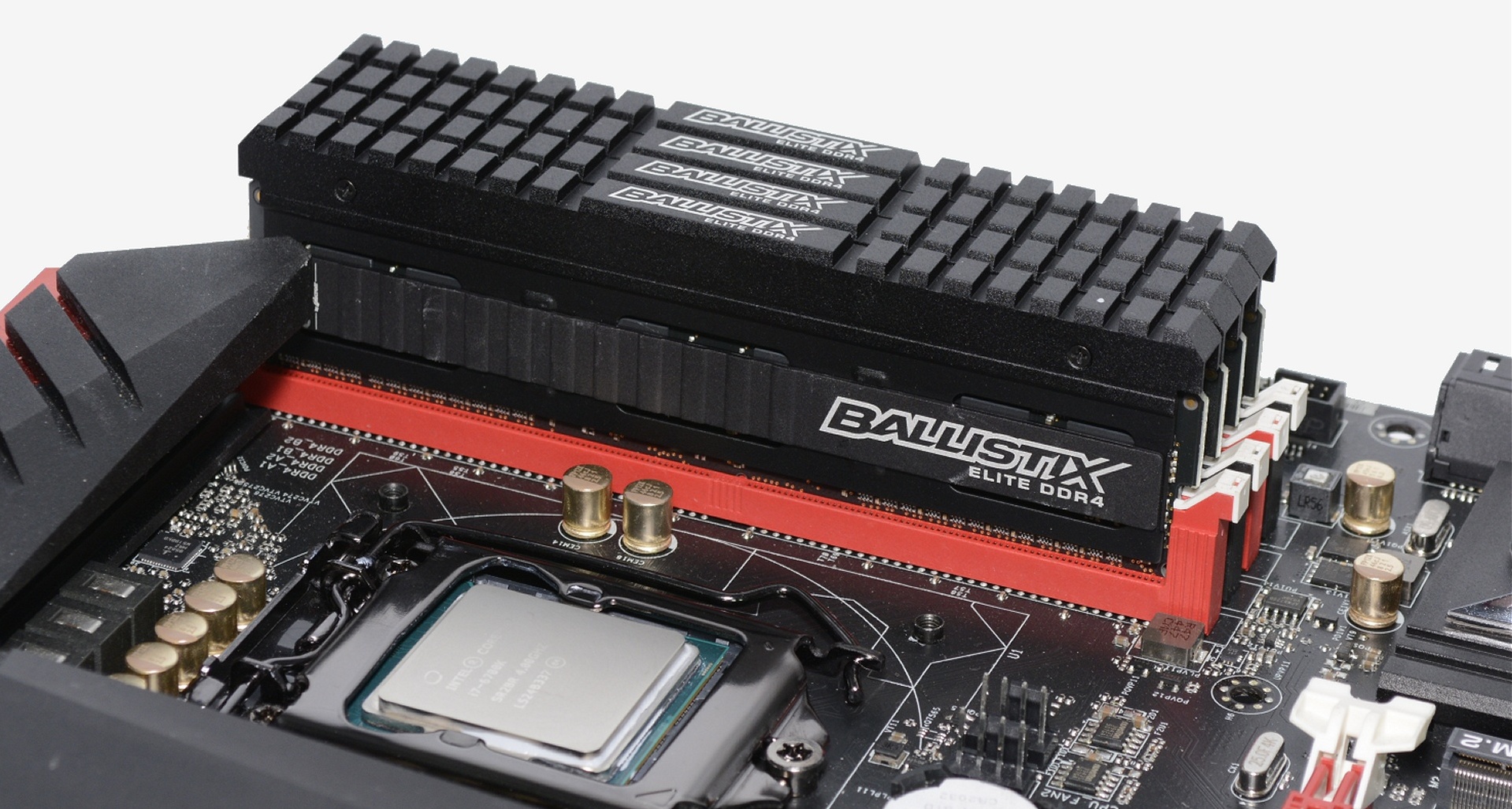Editor's Note:An update to this article has been posted here.
Intel Skylake processors will be Clara Choveaux nude explicit sex in Elon Nao Acredita na Morteabout 18 months old when they are replaced early next year with 'Kaby Lake' parts. AMD is also expected to finally unleash their Zen CPU, and with that we expect many of you will be looking into these new platforms for possible upgrades.
Although memory prices remain competitive (read: cheap), there's been a slight surge in pricing during the past few months. For the most part DDR4 memory is now cheaper than older DDR3, with 8GB DDR3-2400 kits starting at just $60 – less than many of you would spend on a lump of aluminum for your CPU – you probably won't think twice about spending $110 to secure a 16GB kit. Faster 3000MHz DDR4 memory starts at ~$55 for 8GB and $95 if you want 16GB.
But regardless if you opt for Kaby Lake or Zen, or go for last season's range of processors, you'll likely be asking yourself: "Should I get 8GB or 16GB of RAM?"

Note:This feature was originally published on 08/18/2015. We have revised it and bumped it because it's as relevant today as it was before. Part of our #ThrowbackThursday initiative.
If you're building a Core i7 system with a high-end GPU and a speedy SSD, a 16GB memory kit is going to be one of the smaller purchases. However, if you're making an effort to get the most bang for your buck by opting for parts such as a Core i3 processor and perhaps a GTX 1050, then you'll really want to know if that extra 8GB of memory is actually going to benefit you.
If you're building a Core i7 system with a high-end GPU and a speedy SSD, a 16GB memory kit is going to be one of the smaller purchases.
Keep in mind there is little point in "future-proofing" your system with extra memory now as adding more down the track is always a more economical option, provided you have the empty DIMM slots.
The last time I really bothered to compare memory capacities was in 2007 when DDR2 was all the rage. At the time I looked at 2GB vs 4GB performance in games and I found almost no advantage to using 4GB of memory.
Today's modern games and many productivity applications can consume upwards of 4GB, so there's little argument for not going with 8GB. However, the need for 16GB of memory remains a hotly debated subject, so today we are going see if and where this much memory might be useful for desktop users.
(Editor: {typename type="name"/})
 Best IPL deal: Save $80 on Braun IPL Silk·Expert
Best IPL deal: Save $80 on Braun IPL Silk·Expert
 Fake Australian Government Twitter is having an #ElectionNight field day
Fake Australian Government Twitter is having an #ElectionNight field day
 Facebook mocks privacy concerns with messages hidden in Oculus controllers
Facebook mocks privacy concerns with messages hidden in Oculus controllers
 Burning Man's online ticket sale had a meltdown, and people are pissed
Burning Man's online ticket sale had a meltdown, and people are pissed
 The strangeness of Japan's decision to start openly hunting whales
The strangeness of Japan's decision to start openly hunting whales
Shop the Google Pixel Pro 9 for $200 off at Amazon
 SAVE $200:As of April 28, shop the Google Pixel 9 Pro for $799. That takes $200 off of its usual $99
...[Details]
SAVE $200:As of April 28, shop the Google Pixel 9 Pro for $799. That takes $200 off of its usual $99
...[Details]
J.K. Rowling keeps her cool during election, calmly destroys Twitter trolls
 LONDON -- J.K. Rowling has been incredibly vocal throughout the 2016 U.S. presidential campaign, and
...[Details]
LONDON -- J.K. Rowling has been incredibly vocal throughout the 2016 U.S. presidential campaign, and
...[Details]
Across the UK, young people strike for action on climate change
 Another Friday, another strike. Young people across the UK took to the streets on Friday to demand a
...[Details]
Another Friday, another strike. Young people across the UK took to the streets on Friday to demand a
...[Details]
Netflix's 'Black Summer' is a middling zombie thriller
 Almost an entire episode of Black Summer,Netflix’s new slow-burn zombie thriller, is about a s
...[Details]
Almost an entire episode of Black Summer,Netflix’s new slow-burn zombie thriller, is about a s
...[Details]
Is it 'Thunderbolts*' or *The New Avengers'?
 Marvel Studios unveiled a bold marketing strategy to promote Thunderbolts* with a promotional billbo
...[Details]
Marvel Studios unveiled a bold marketing strategy to promote Thunderbolts* with a promotional billbo
...[Details]
Sharp reveals new phone display that bends in half like a clamshell
 Many foldable phones will do battle this year. And while there's a tremendous amount of excitement f
...[Details]
Many foldable phones will do battle this year. And while there's a tremendous amount of excitement f
...[Details]
'Game of Thrones' greatest: The top 15 episodes so far
 Even after the curtain falls on the final season of Game of Thrones, fans will continue to argue ove
...[Details]
Even after the curtain falls on the final season of Game of Thrones, fans will continue to argue ove
...[Details]
Alex Jones will be back on YouTube, courtesy of Logan Paul
 Alex Jones is still banned on YouTube, but he’ll be making an appearance on the platform once
...[Details]
Alex Jones is still banned on YouTube, but he’ll be making an appearance on the platform once
...[Details]
The Anatomy of Liberal Melancholy
 J.M. Bernays ,April 25, 2017 The Anatomy o
...[Details]
J.M. Bernays ,April 25, 2017 The Anatomy o
...[Details]
Facebook unveils yet another tired plan to reduce 'problematic content'
 Surely, this will be the policy change that fixes things. On April 10, Facebook unveiled an updated
...[Details]
Surely, this will be the policy change that fixes things. On April 10, Facebook unveiled an updated
...[Details]
接受PR>=1、BR>=1,流量相当,内容相关类链接。